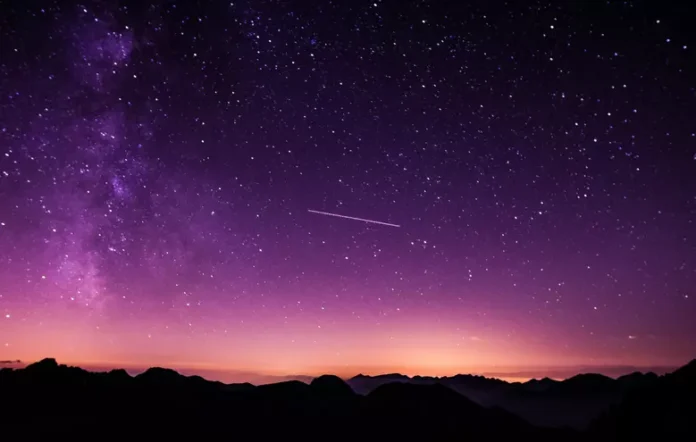Tonight, skywatchers across Maine and much of the northern hemisphere are in for a rare treat: the Boötid meteor shower may surprise with bright streaks over Maine skies. This unpredictable celestial event, known for its dramatic variability, is peaking on June 27, 2025, and could deliver anything from a gentle trickle to a dazzling outburst of shooting stars.
Boötid Meteor Shower: What Makes Tonight Special
The Boötid meteor shower is active from June 22 to July 2, but tonight marks its highly anticipated peak. Unlike more predictable meteor showers, the Boötids are famous for their “boom or bust” nature. Some years, observers see only a handful of meteors; in rare instances, the sky erupts with over 100 meteors per hour. The last major outburst happened in 1998, making every Boötid peak a potential spectacle.
Originating from debris left behind by Comet 7P/Pons-Winnecke—a 3-mile-wide comet—the Boötids are created when tiny fragments burn up in Earth’s atmosphere, producing the brilliant streaks of light we call meteors. Each June, Earth crosses the comet’s debris trail, setting the stage for this unpredictable meteor shower.
Key Points Summary
- Boötid meteor shower peaks tonight, June 27, 2025
- Known for erratic displays: from a few meteors to over 100 per hour
- Best viewing after sunset, looking west and overhead
- Originates from Comet 7P/Pons-Winnecke
- Last major outburst: 1998
- Weather: Cloudy in some areas, but dark skies due to new moon phase
When and Where to Watch the Meteor Shower Tonight
For the best chance to witness the Boötid meteor shower tonight, head outside after sunset. Look nearly directly overhead, toward the west, in the direction of the setting sun. The radiant point—the spot in the sky where meteors appear to originate—is in the constellation Boötes, high above the western horizon.
The most spectacular displays are expected in the hours just after dusk, when the radiant is at its highest. This year, viewing conditions are favorable thanks to the new moon phase, which means minimal moonlight interference and darker skies. However, weather forecasts predict increasing cloud cover into the evening for parts of Maine, so finding a clear patch of sky will be crucial.
What to Expect: Boom or Bust
The Boötid meteor shower is classified as a “Class III Variable” event, meaning its activity can swing wildly from year to year. While there’s no guarantee of a major display, even a single Boötid meteor can be a showstopper, often leaving long-lasting, bright trails across the sky.
If you’re lucky, you could witness dozens or even hundreds of meteors per hour. But even if the shower is subdued, the opportunity to see a rare, bright meteor streaking overhead is well worth the effort. The unpredictability is part of the excitement—every Boötid peak is a cosmic gamble.
Tips for Meteor Watching Tonight
- Find a dark location: Get away from city lights for the best visibility.
- Bring a blanket or reclining chair: Comfort is key for long skywatching sessions.
- Let your eyes adjust: Allow at least 20 minutes for your eyes to adapt to the darkness.
- Look west and overhead: Focus on the area near the Boötes constellation.
- Be patient: Meteor showers can come in bursts; stay outside for at least an hour for the best chance.
Social Buzz and Community Excitement
On social media, astronomy enthusiasts and local news outlets are buzzing about the Boötid meteor shower. Instagram and YouTube are filled with tips for capturing meteors on camera, while stargazing communities are organizing group viewings and sharing real-time updates on sky conditions.
Many are hopeful for a repeat of the stunning 1998 outburst, when the Boötids delivered a breathtaking show. Whether tonight brings a similar spectacle or a quieter display, the anticipation has united skywatchers across Maine and beyond.
What’s Next for Meteor Watchers?
If clouds spoil your view tonight, don’t worry—June and July are rich with celestial events. The Southern delta Aquariids and alpha Capricornids meteor showers are set to peak in late July, offering more opportunities for stargazing. And in August, the famous Perseids will light up the night sky, though moonlight may reduce their visibility this year.
Conclusion
Tonight’s Boötid meteor shower may surprise with bright streaks over Maine skies, offering a thrilling chance to witness a rare and unpredictable celestial event. Whether you catch a single dazzling meteor or a flurry of shooting stars, the experience is sure to inspire awe and wonder. So grab a blanket, head outside after sunset, and keep your eyes on the sky—you might just catch a glimpse of cosmic history in motion.
Don’t miss your chance to witness the Boötid meteor shower tonight! Share your stargazing experiences on social media, tag your photos, and connect with fellow skywatchers. For more updates on upcoming celestial events, subscribe to our newsletter and join the conversation.
